Water and Public Health Research
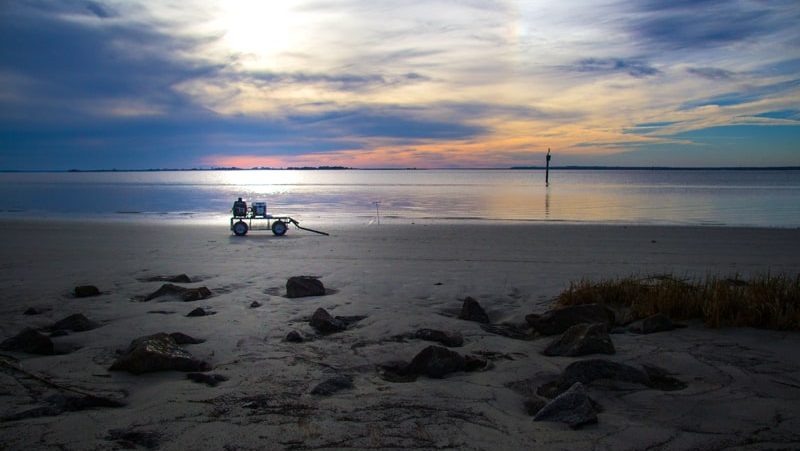
Sustainable Water Resource Management
As Coastal Georgia’s population is expected to be one million people by 2060, there will be more demand for water to meet municipal, industrial, and agricultural needs. At IWH, through state-of-the-art technologies, researchers, along with our regional partners, seek solutions to water demand challenges associated with water demand, watershed management, and saltwater intrusion.
A Pilot Web-based Water Dashboard for Coastal Georgia Regional Water Planning
Funding Agency: Georgia Environmental Protection Division
Project Team: Asli Aslan (PI), Francisco Cubas (Co-PI), James Reichard (Senior Personnel)

Nature-Based Solutions for Wastewater Management
Funding Agency: Georgia Southern University
Project Team: Dr. Athony Siccardi (PI), Dr. Asli Aslan (Co-PI), Dr. Michele Guidone (Co-PI), Dr. Jay Hodgson (Co-PI), Dr. John Carroll(Co-PI), Luke Roberson (Co-PI)
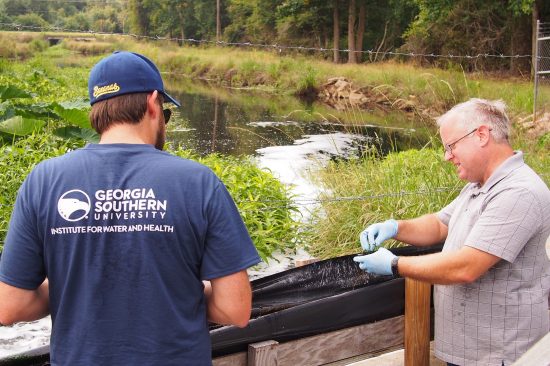
Developing Sustainable Practices for Co-digestion of Food Waste and Paper Mill Sludge, Leveraging Existing Anaerobic Digestion Infrastructure
Funding Agency: United States Environmental Protection Agency
Project Team: Stetson Rowles (PI), Francisco Cubas (Co-PI), Asli Aslan, (Co-PI)
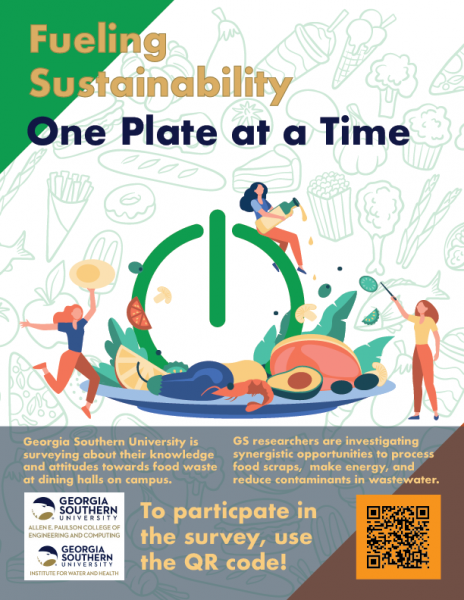
Water Quality, Climate, and Health Risk Assessment
At IWH, our researchers use cutting-edge water quality monitoring tools to identify and mitigate sources of pollution and develop new approaches to address emerging contaminants, ultimately making coastal waters safer for people.
Microbial Source Tracking at Vernon River
Funding Agency: The City of Savannah
Project Team: Asli Aslan (PI), Luke Roberson (Co-PI)
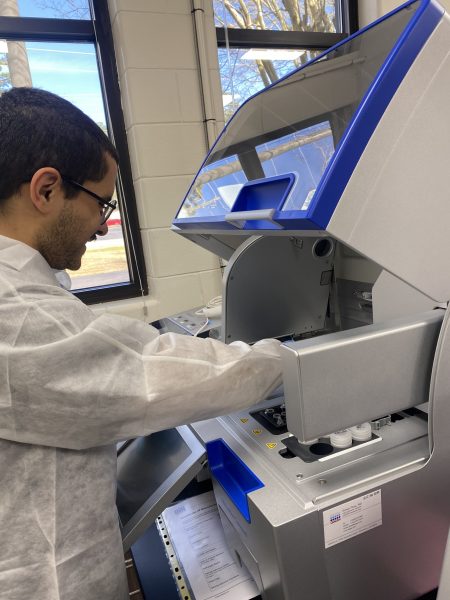
What’s in Your Water: The State of Drinking Water Quality in Evans County
Funding Agency: Evans County CARES Foundation
Project Team: Asli Aslan (PI, Georgia Southern University)
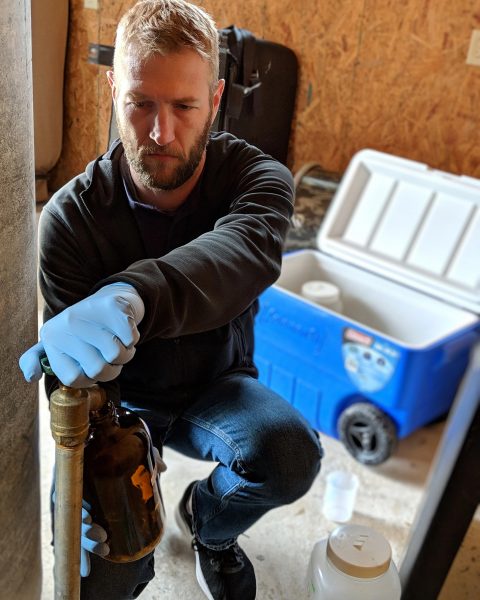
Water Stewardship and Environmental Justice
Georgia has deep strengths in environmental research and technology implementation capacity, but these strengths have not been available to spark collaboration, innovation, and economic growth in all communities equitably. Solutions based on scientific data need to be available for everyone to create meaningful changes.

Georgia Smart Communities: Safe Water Together at Glynn County
Funding Agency: Partnership for Inclusive Innovation
Project Team: Asli Aslan (PI, Georgia Southern University), Stacy Smallwood (Co-PI, Georgia Southern University), Russ Clark (Co-Investigator, Georgia Institute of Technology)
Okefenokee 2 Ocean: Understanding Real-world Relevance through Suwanee Watershed Assessment and Monitoring Project (SWAMP 2 GULF)

Funding Agency: National Academies of Sciences, Engineering, Medicine
Project Team: Lacey Huffling (PI, Georgia Southern University), Regina McCurdy (Co-PI, Georgia Southern University), and Heather Scott (Co-PI, Georgia Southern University)
The IWH is part of a multidisciplinary team from Georgia Southern that was awarded a grant from the National Academies of Sciences, Engineering, and Medicine to work with educators and students to provide hands-on experiences in watershed science, biology, and chemistry. The funded project, “Suwannee Watershed: Assessment and Monitoring of Place to Gain Understanding of Local Flow (SWAMP to GULF),” is led by principal investigator (PI) Lacey Huffling, Ph.D., associate professor of science education, and co-PIs Heather Scott, Ed.D., and Regina McCurdy, Ph.D., both assistant professors of science education. Dr. Asli Aslan and Luke Roberson from the IWH will be focused on science communication, citizen science techniques, and environmental experiential education.
Workforce Development
Support and training of the next generation of environmental health professionals benefit the entire coastal region of Georgia. The IWH works to facilitate workforce development, focusing on bringing in people from groups that have been historically underrepresented in environmental science and public health. Listening to the needs of our coastal communities helps us develop the skills necessary to create careers that support our residents.
RaMP: Mentoring and Research Opportunities for Careers in Coastal Science
Funding Agency: National Science Foundation
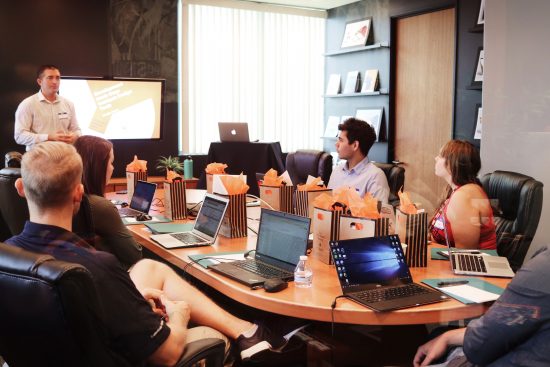
Project Team: Checo Colon-Gaud (PI), John Carroll (co-PI), Lacey Huffling (co-PI), Asli Aslan (co-PI)
The Mentoring and Research Opportunities for Careers in Coastal Science (MROC2S) Program at Georgia Southern University provides year-round mentoring, professional development, and diverse research training opportunities in natural resource science for postbaccalaureate participants. MROC2S aims to develop a strong, inclusive research and technical skills program that produces a more diverse STEM workforce. Participants will be integrated into a diverse network of natural resource professionals devoted to research, management, and conservation efforts in the Atlantic Coastal Plain and Gulf Coast regions to expose them to careers and opportunities in this field. MROC2S comprises a network that includes academics as the primary research mentors, partnerships with state/federal agencies and NGOs, and long-term research sites. Network partners contribute to projects and experiences centering on the region’s restoration, conservation, and management of natural resources.
Last updated: 1/8/2024
